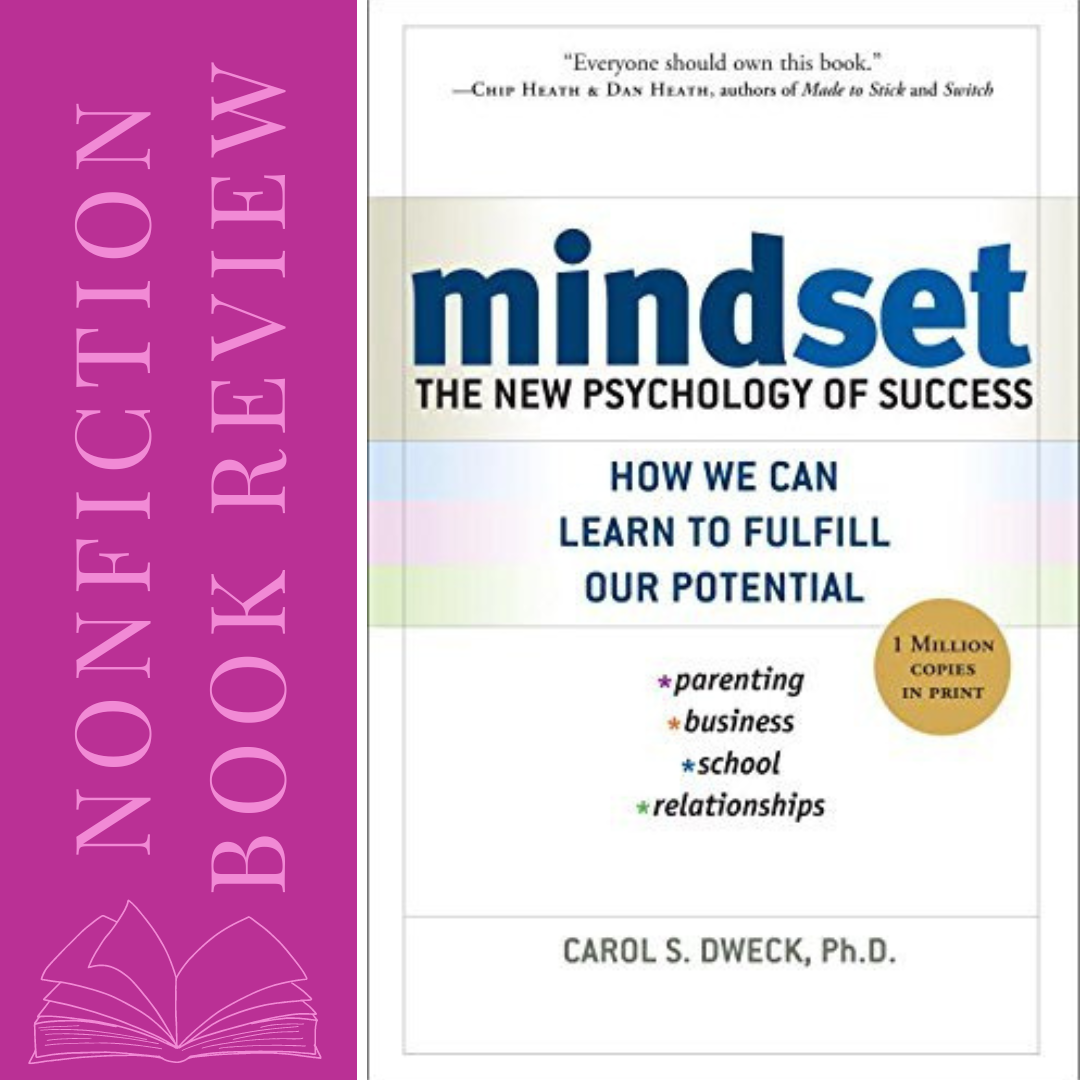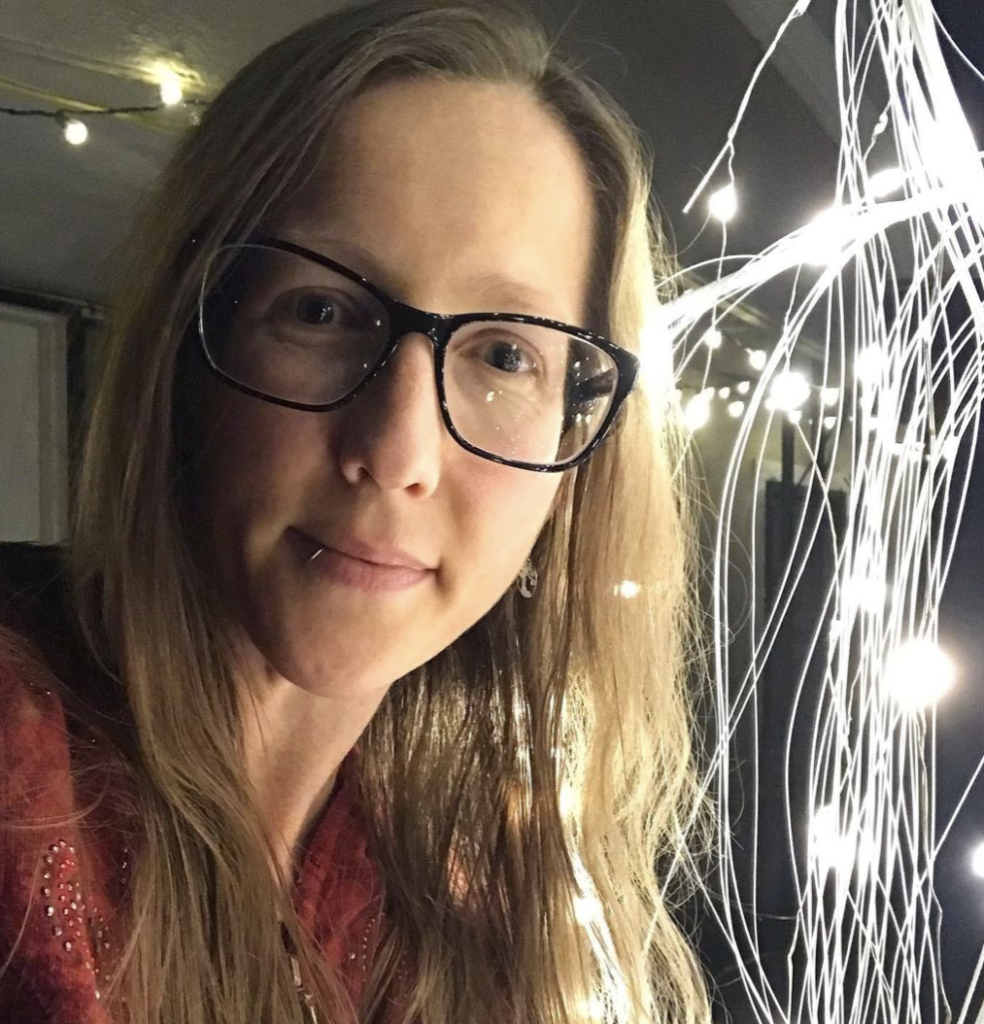I enjoy keeping nonfiction on regular rotation in my reading life.
My big picture focus is almost always on living a good life. As a result my nonfiction book choices often relate in that they contain a lesson to improve or better my life.
My areas of interest usually have to do with self help or personal development whether that’s positive psychology books, parenting guides, or deep dives into nutrition.
In my current reading life, I find it works to focus on one nonfiction book a month.
I try to take a slow and steady approach reading a chapter a day to really absorb the information. Often times that means it takes me 10 days to 2 weeks to finish the book. Sometimes longer.
Last year, to expand on this trend in my reading life, I started a nonfiction book club over on Fable called Pearls of Wisdom. It’s a book club for anyone who wants to learn, reflect, and grow together through nonfiction reading.
December’s pick, Mindset by Carol S. Dweck, PhD, marked our last nonfiction book club read on Fable for the foreseeable future. I shared more on this decision in my 2024 reading life plans.
If Pearls of Wisdom is something you’re interested in checking out, all of our past book club picks are still available to read along with. You can even add your own notes and comments. It’s like an open ended book club experience.
Why a Nonfiction Review Section?
While I enjoy my fable book clubs, I found I missed the process of sharing an in-depth review of my nonfiction read on the blog.
I used to do this nonfiction spotlight for my year of health experiment way back in 2021 when I was pregnant with Mr. O.
Writing out my thoughts, feelings, and takeaways from the book helps me work through them. It also solidifies them in my mind to take forward with me.
I find I’m more comfortable being a bit more vulnerable in this space. That vulnerability is where those nuggets of wisdom from the reading life can move forward into actual life.
December’s Nonfiction Read
In December we read Mindset: The New Psychology of Success by Carol S. Dweck.
This book had been on my TBR for years! It was one of the first books I added to my idea list of nonfiction titles for the book club.
Throughout 2023, I was reminded of it as it was highlighted as a resource in many of our book club reads last year.
To be honest it was all of the recent 2 star reviews on goodreads that put me off for so long. But December felt like a great time to learn all about cultivating a growth mindset before we entered a new year!
Mindset: The New Psychology of Success by Carol S. Dweck, PhD
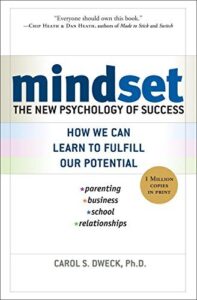
Book Blurb:
“Now updated with new research — the book that has changed millions of lives.
After decades of research, world-renowned Stanford University psychologist Carol S. Dweck, Ph.D., discovered a simple but groundbreaking idea: the power of mindset. In this brilliant book, she shows how success in school, work, sports, the arts, and almost every area of human endeavor can be dramatically influenced by how we think about our talents and abilities. People with a fixed mindset — those who believe that abilities are fixed — are less likely to flourish than those with a growth mindset — those who believe that abilities can be developed. Mindset reveals how great parents, teachers, managers, and athletes can put this idea to use to foster outstanding accomplishment.
In this edition, Dweck offers new insights into her now famous and broadly embraced concept. She introduces a phenomenon she calls false growth mindset and guides people toward adopting a deeper, truer growth mindset. She also expands the mindset concept beyond the individual, applying it to the cultures of groups and organizations. With the right mindset, you can motivate those you lead, teach, and love — to transform their lives and your own.”
Review of Mindset by Carol S. Dweck, PhD
I gave this book 4.5 stars upon finishing.
As I’m writing this review a month later, 4 stars might have been a more accurate rating. This is yet another example of why ratings are so subjective!
The beginning of this book was very powerful for me.
As someone who spends a lot of time reading and thinking about how they could grow, it blew my mind to see the areas where I fall into a fixed mindset – far more often than I expected. I also strongly related to the author’s childhood experiences. Especially surrounding school, grades, and being praised for intelligence over effort or learning. I can see how this could affect your mindset.
The first three chapters covered the mindsets, how they develop, how they alter the ways we view failure and effort, and the truth about ability. They offered a great overview of this framework.
The second half, as fellow Fable reader Becky wrote in her review, was ” basically a choose your own adventure.” I loved that comparison! You could just read the chapters that apply to your life or interest you.
It was here that I felt the practical application parts tampered off. It didn’t pick back up until the end. I wished there was less focus on sports and more time spent on how to change your mindset with real life examples of her 4 or 5 step process. But I was approaching it as a person and a parent not a businesswoman, athlete, or coach.
I understand people’s complaints that Dweck oversimplified some very complicated struggles to support her theory. At the most frustrating point in the book, she implies a person’s fixed mindset is to blame for their suicide. Not only was this in bad taste but it’s also a potentially harmful oversimplification.
I also did not like Dweck’s choice to frame mindset as an either/or situation for most of the book. At the end of the book she writes one sudden paragraph about how everyone actually has a combination of both mindsets. She touched on this a little bit at the beginning with how our mindsets change when we consider different skills and abilities (intelligence, artistic, athletic, etc).
If this combination had been emphasized all along, the book may have gone over better with readers who intuited this from the beginning. Many reviewers seemed put off by her initial black and white stance.
Even with those negatives, I found the book overall helpful and informative.
Pearls of Wisdom Takeaways
- As I shared above this book showed me areas where I’m actually approaching life from a fixed mindset. Awareness is the first step to change.
- Chapter 2 touched on how all children are born with a growth mindset and love of learning. This is something I get to witness every day with my son. It’s important to me to encourage Mr. O to hold onto that mindset and love as he grows up and recognize situations or behaviors that instead, even unconsciously, encourage a fixed mindset (like praise and sadly many situations related to school).
- Along those same lines, another takeaway was the importance of being involved in your child’s education. Praying they wind up in a classroom taught by a growth mindset teacher wouldn’t hurt either.
- One question that came up while reading was how can I enjoy the process of everyday tasks rather than focusing on the outcome? Life is all process after all – a journey not a destination. I also wondered if I was approaching my daily to do list with a fixed mindset, all focused on the outcome, and perhaps that’s part of what takes the joy out of a lot of it.
- I suspect I think about death more than most people. Often when I’m feeling low and pondering such things, I also feel like there’s not enough time to do it all so what is the point? My focus is solely on that final outcome, we all die anyway. That’s not healthy and perhaps an example of a fixed mindset at its worst. It seems fixed mindset and black and white thinking go hand in hand.
- In chapter 6 Dweck shared some powerful thoughts on the link between bullying and school shootings. It involved fixed mindset on the part of schools. I feel that ideas for eradicating bullying like Stan Davis’s program and Dan Olweus’s research definitely couldn’t hurt! It helps both the victims and the kids who are bullying others.
- I had a lot of personal takeaways from this book but the one I deemed most important in my nonfiction roundup was the effects of praise on children and how dangerous praise can be when it comes to mindset. I can always use the reminder to praise effort tied back into learning and to stop ability, talent, or outcome based praise.
January’s Nonfiction Reads
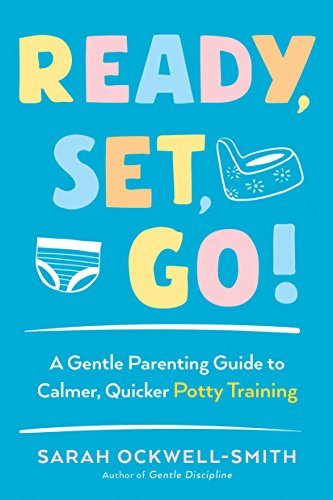
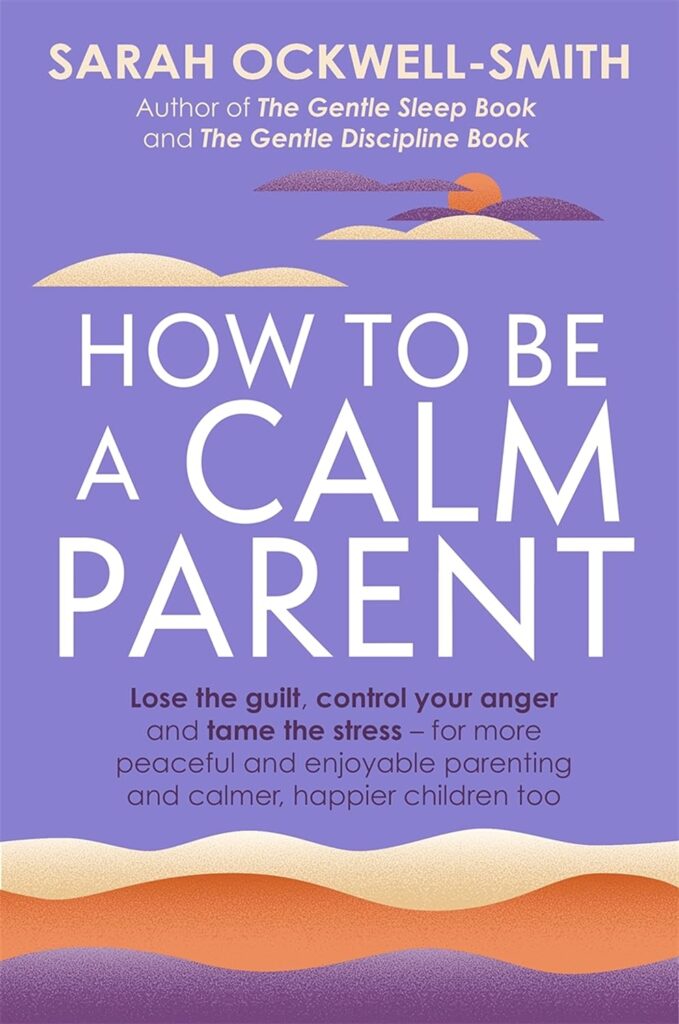
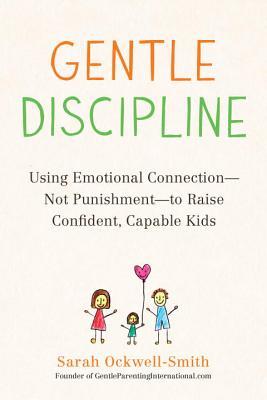
As I shared above, I’m taking a break from my nonfiction book club, Pearls of Wisdom. However I still plan to read a nonfiction book each month. I will share my personal takeaways and growth from it here on the blog in my in-depth nonfiction book reviews.
January is the month of diving back into Sarah Ockwell-Smith’s gentle parenting work. I plan to read Ready, Set, Go!: A Gentle Parenting Guide to Calmer, Quicker Potty Training because we’re nearing that time in our house.
I was a little concerned this topic wouldn’t be enough for an in-depth nonfiction review so I’m reading a couple of her other books. How to Be a Calm Parent: Lose the Guilt, Control Your Anger and Tame the Stress – for More Peaceful and Enjoyable Parenting and Calmer, Happier Children Too has been sitting in my audible library for too long. The title is a mouthful but who couldn’t use more calm in their lives especially when it comes to parenting?
If there’s time, I also plan to revisit Gentle Discipline: Using Emotional Connection – Not Punishment – to Raise Confident, Capable Kids (4.5 stars). I read it last January and immediately bought a physical copy for our reference shelf. It would be a great one to review. I’d love to use some of my new annotation supplies on it!
Do you believe things like intelligence, artistic ability, athleticism, and leadership are natural talents or skills you can develop? Do you have an idea of which mindset you’re most often in? Which chapters of this book do you find most interesting? If you’ve read Mindset, I’d love to hear some of your thoughts and takeaways!

